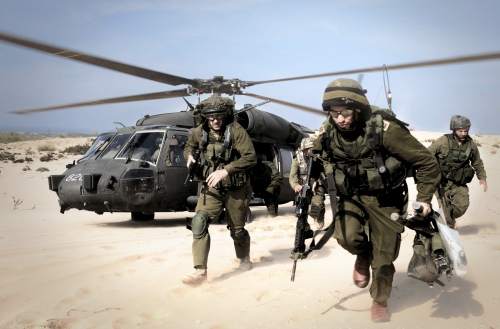The IDF (Israel Defense Forces) is reportedly honing its cyber-warfare capabilities in preparation for future conflicts.
According to David Eshel of Aviation Week, the IDF has already conducted a number of successful cyber-warfare campaigns, including hacking into Syrian air-defense radars during an operation against the country’s nascent nuclear weapons program.
The Israeli military is also taking steps to fortify its line of digital defenses after coming under cyber-attack during Operation Cast Lead in 2009.

Indeed, an enemy hacker attempted to breach the sophisticated electronic perimeter protecting Israel’s Amos 3 spy satellite with the goal of replacing state television broadcasts with hostile propaganda.
Although the attack was successfully repelled, the incident marked the first time Israel faced a cyber-attack against its satellite transmissions.
However, a second, more serious cyber-security breach reportedly occurred during the 2006 Second Lebanon War, when Iranian-backed Hizballah guerrillas successfully hacked into Israel’s communications network.
As Eshel notes, the cyber infiltration granted Hizballah “an unprecedented intelligence breakthrough” – allowing its operatives to thwart armored assaults by firing long-range armor-piercing munitions at pre-identified approach routes.
As expected, the above-mentioned breaches prompted IDF officials to revise the military’s cyber doctrine, with a particular emphasis on bolstering the security of critical computer and radio networks.
Fo example, the IDF plans to build and deploy an extended high-speed broadband fiber-optic network known as “Gold Avnet” that will be used by mobile ground, air and naval units (in 2012).

In addition, the Israeli Ministry of Defense (MoD) is testing RIM’s secure server system with an eye on significantly expanding network bandwidth.
This would enable BlackBerry devices to receive live video footage from unmanned aerial vehicles (UAVs) and secure video-conference calls between commanders.
It should be noted that the IDF’s formidable cyber-warfare capabilities have won accolades from numerous defense officials, including Air Chief Marshal Sir Stephen Dalton of the Royal Air Force.
To be sure, Dalton recently told a British newspaper that the UK could “take lessons” from the Israeli military in the use of sophisticated measures to engage in 21st-century cyber-warfare and achieve victory on future battlefields.







